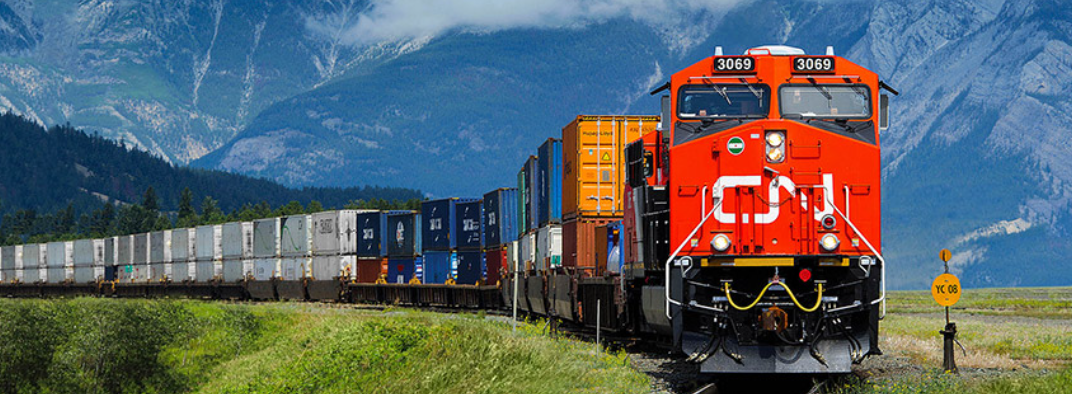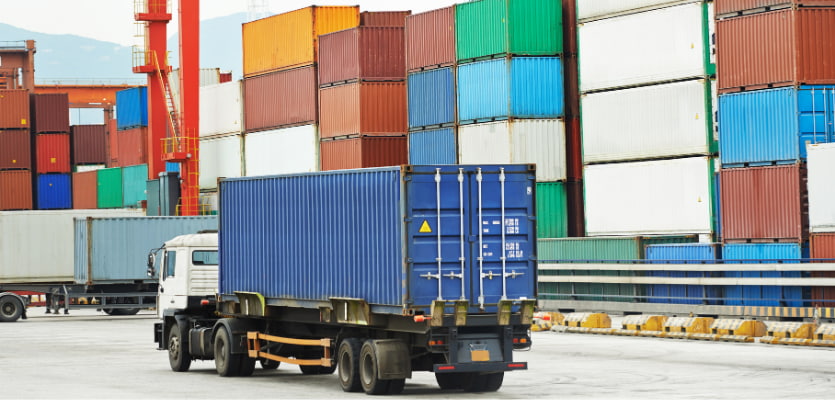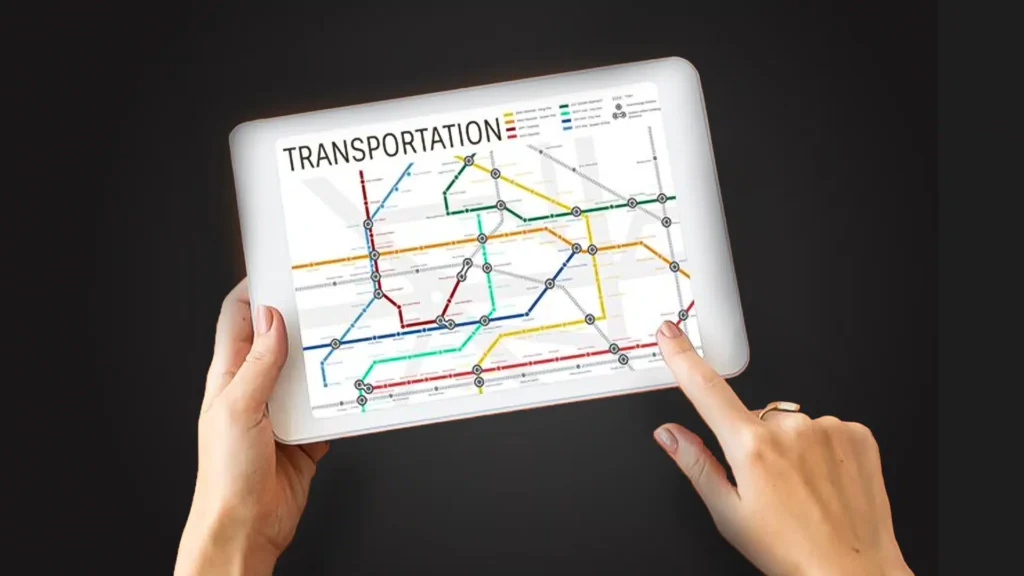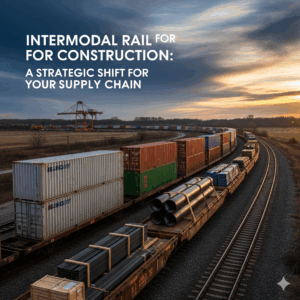Why Intermodal Over Road Shipping Is Gaining Momentum in 2025
In the dynamic and ever-evolving world of logistics, intermodal over road shipping has emerged as a powerhouse solution that blends cost-efficiency, environmental responsibility, and reliability into one seamless operation. As 2025 unfolds, companies across Canada and North America are turning their attention to intermodal over road shipping not only as a strategic cost-saving move but also as a pathway to streamlined, sustainable freight solutions. The logistics industry is experiencing a pivotal shift, and businesses that embrace intermodal over road shipping stand to reap significant rewards.
So what exactly is intermodal over road shipping? It refers to the integration of multiple transportation modes – primarily rail and truck – without handling the freight itself when switching modes. By leveraging the strength of rail for long hauls and trucks for local deliveries, businesses benefit from reduced fuel consumption, fewer delays, and improved cargo integrity. This hybrid approach has grown exponentially in 2025 as shippers seek alternatives to traditional trucking, which has been plagued by driver shortages, rising fuel costs, and highway congestion.
One of the most compelling advantages of intermodal over road shipping is its cost efficiency. Rail transport can move large volumes of goods over long distances at a lower cost per mile than road freight. For companies shipping across provinces or across the U.S.-Canada border, this translates into major savings on transportation budgets. Moreover, with fuel prices expected to remain volatile in 2025, rail’s superior fuel economy makes it a reliable hedge against inflation.
Environmental sustainability is another driving force behind the rise of intermodal over road shipping. Rail transport emits significantly less carbon dioxide per ton-mile than trucks. With increasing government pressure and corporate ESG (Environmental, Social, and Governance) mandates, businesses are looking for ways to reduce their carbon footprints. Adopting intermodal over road shipping not only helps meet sustainability goals but also enhances a brand’s public image as a responsible player in the logistics chain.
Beyond cost and sustainability, intermodal over road shipping offers reliability and scalability. Rail schedules are often more predictable than truck routes, especially during high-traffic seasons or inclement weather. In 2025, real-time tracking technology has greatly improved, allowing shippers to monitor intermodal shipments with precision and confidence. This visibility minimizes the risk of delays, helps anticipate bottlenecks, and ensures timely deliveries.
As companies increasingly operate in e-commerce-driven markets, agility and responsiveness are essential. Intermodal over road shipping allows businesses to diversify their transportation portfolios, which makes them less vulnerable to disruptions in any one mode. For instance, if a trucking shortage arises, having intermodal options already in place provides an instant solution. This flexibility is invaluable in maintaining supply chain continuity.
In addition, government investment in intermodal infrastructure has been ramped up across Canada and North America in 2025. Major terminal expansions, improved rail-to-road connectivity, and digitization initiatives have made intermodal over road shipping faster and more accessible than ever before. This supportive environment creates a strong foundation for businesses to make the switch.
By integrating intermodal over road shipping into your logistics strategy, you’re not just keeping pace with industry trends – you’re future-proofing your operations. From minimizing costs and reducing environmental impact to enhancing delivery reliability and mitigating risks, the benefits are clear and compelling. In the following sections, we’ll dive deeper into best practices, challenges, and solutions that will help you maximize your returns from intermodal over road shipping.

Cost Savings Without Compromise
A key advantage of intermodal shipping lies in its potential to reduce costs. Rail transport, a fundamental element of intermodal logistics, consumes significantly less fuel compared to trucks, making it a more cost-effective solution for long-distance freight.
Main Significance:
Businesses can achieve substantial cost savings. By transitioning from road-based transportation to intermodal solutions. Reduced fuel consumption directly translates to lower transportation expenses, ultimately contributing to increased profitability.”
This version maintains a formal tone by using more sophisticated vocabulary while ensuring clarity and readability.
Comparable Transit Times
Contrary to a widely held misconception, intermodal over road shipping does not directly translate to extended transit times. When implemented efficiently using optimized rail networks and seamless transitions to road transport for final delivery. Intermodal shipping can achieve transit speeds that are highly competitive with traditional road transport.
Key factors contributing to this efficiency include:
- Strategic Rail Infrastructure: Well-maintained and efficiently managed rail networks play a crucial role in minimizing delays associated with intermodal shipping. Regular maintenance, timely upgrades, and optimized scheduling contribute to a reliable and swift rail transportation system.
- Streamlined Handoffs: The seamless transfer of cargo between rail and road transport modes is paramount for maintaining competitive transit times. Efficient logistics planning, including optimized transfer points and minimized dwell times, ensures a smooth and uninterrupted flow of goods.
An Example:
RailGateway shows this efficiency with its 24-hour on-site loading and delivery services in major cities. This commitment to rapid turnaround times minimizes delays at transfer points, ensuring a swift and efficient transition between rail and road transport!
Reduced Theft and Cargo Risks
Cargo theft and damage are big problems for companies that only use trucks to ship things. Trucks driving on roads are easy targets for thieves, and the multiple times they have to be loaded and unloaded can damage goods. This can cost companies a lot of money and mess up their shipping schedules this being an important point to consider when choosing intermodal over road shipping
Intermodal shipping is a smart way to solve these problems. It uses trains along with trucks, which makes shipping much safer. Trains are harder to steal from and have better security. Plus, because goods are loaded into containers and moved by train for long distances, they don’t have to be handled as much. This means less chance of damage.
Reduced Risk of Theft:
- Controlled Environment: Rail transport operates within a more controlled and secure environment compared to over-the-road trucking. Rail yards and terminals are typically equipped with robust security measures, including surveillance systems, access controls, and dedicated security personnel. This controlled environment significantly reduces the opportunities for unauthorized access and theft.
- Reduced Exposure: Unlike trucks that traverse vast distances on open highways, rail transport confines cargo to designated rail lines, minimizing exposure to potential thieves and reducing the risk of opportunistic theft.
Minimized Product Damage:
- Reduced Handling: Intermodal shipping minimizes the number of times cargo is handled during transit. By consolidating shipments into containers and transporting them directly by rail, the need for frequent loading, unloading, and transfer operations is significantly reduced. This minimizes the risk of damage that can occur during manual handling.
- Improved Protection: Rail transport provides a more stable and controlled environment for cargo compared to road transport, which is subject to the stresses of road conditions and weather variations. This reduced exposure to external factors helps to minimize the risk of damage during transit.
Eco-Friendly and Sustainable Logistics
Intermodal over road shipping is a much greener choice than relying solely on trucks. Trains are far more fuel-efficient than trucks, producing significantly fewer greenhouse gas emissions. In fact, according to a study on transportation emission, rail transport emits about 82% less carbon dioxide per mile than trucking. This makes intermodal shipping a more sustainable option for businesses that want to reduce their environmental impact.
Why This Matters Now
Environmental regulations are becoming stricter, and consumers are increasingly demanding that businesses operate in a more sustainable way. By switching to intermodal over road shipping, businesses can demonstrate their commitment to environmental protection and gain a competitive advantage in the marketplace.
Choosing intermodal shipping can help businesses meet environmental regulations, reduce their carbon footprint, and appeal to eco-conscious consumers and boost intermodal sustainability.

Specialized Options for Every Need
Intermodal over road shipping stands out as a versatile and adaptable mode of transport, offering tailored solutions to meet the unique requirements of various freight needs. Its flexibility allows for seamless transitions between different modes of transportation, such as rail and truck, optimizing efficiency and cost-effectiveness.
One notable example is RailGateway, which specializes in temperature-controlled solutions for perishable goods. This makes sure that sensitive cargo, such as pharmaceuticals or fresh produce, arrives at its destination in pristine condition, maintaining its quality and integrity throughout the journey.
Key Offerings:
- Refrigerated Options: These specialized containers maintain precise temperature levels, crucial for preserving the integrity of perishable goods during transit.
- Heated Shipping: This service is essential during colder months, preventing sensitive cargo from freezing and ensuring its safe arrival.
By leveraging the strengths of intermodal over road shipping and specialized services like temperature control, businesses can streamline their supply chains, reduce costs, and enhance the overall quality and reliability of their freight transportation.
Simplified Supply Chain Management
Intermodal over road shipping empowers businesses to optimize their logistics operations while maintaining the flexibility necessary to adapt to changing market demands. By seamlessly integrating multiple modes of transportation, such as rail and truck, intermodal shipping streamlines the movement of goods, enhances efficiency, and reduces overall transportation costs.
RailGateway plays a pivotal role in assisting businesses to effectively manage their freight transportation needs. Our comprehensive suite of services extends beyond mere transportation, encompassing valuable consulting services and robust tracking systems.
These tools provide businesses with the insights and control they need to make informed decisions, optimize their supply chains, and ensure the timely and secure delivery of their goods.
Enhanced Support and Guidance:
Our commitment to client success goes beyond simply providing transportation services. We recognize that transitioning to intermodal shipping can involve a learning curve. To facilitate a smooth transition, RailGateway offers dedicated expert guidance throughout the entire process.
Our team of experienced professionals works closely with clients, providing expert advice on every step of the journey, from initial planning and route optimization to seamless execution and ongoing support.
This personalized approach ensures that businesses can confidently embrace intermodal over road shipping and reap its numerous benefits.
A Strategic Advantage for Modern Businesses:
Intermodal over road shipping is not merely an alternative mode of transportation; it represents a strategic advantage for forward-thinking businesses seeking to enhance their competitiveness and sustainability. By leveraging the cost-effectiveness, efficiency, and reduced environmental impact of rail transportation, businesses can significantly improve their bottom line while minimizing their carbon footprint. Whether shipping domestically within Canada or across international borders to the USA, RailGateway simplifies the transition to intermodal shipping, making it a seamless and efficient component of your overall logistics strategy.
Additional Resources:
- Canadian National Railway (CN) – Intermodal Shipping Solutions
- Transport Canada – National Trade Corridors Fund
- FreightWaves – Intermodal Market Updates
- Association of American Railroads – Benefits of Intermodal
- Government of Canada – Trucking and Road Transportation
Conclusion
As we wrap up this comprehensive look into intermodal over road shipping, it’s evident that this approach is more than a passing trend – it’s a transformative force shaping the future of freight logistics. In 2025, companies that have made the leap into intermodal over road shipping are reporting stronger supply chain resilience, lower freight costs, and a notable reduction in environmental impact. This is not just about improving how goods move; it’s about optimizing every link in your logistics chain.
When you compare intermodal over road shipping to traditional long-haul trucking, the differences are striking. Intermodal shipping leverages the best of both worlds: the efficiency of rail for long hauls and the flexibility of trucks for last-mile delivery. This powerful combination reduces dependence on congested highways and improves fuel economy, which is critical in today’s climate-aware world. The result? Businesses are seeing fewer delays, less cargo damage, and better overall performance.
Investing in intermodal over road shipping means proactively addressing many of the challenges that plague road-only freight. From rising insurance claims due to accidents and theft, to inconsistent delivery times caused by driver shortages, road freight comes with mounting liabilities. Intermodal systems significantly lower these risks by reducing transit time variability and minimizing touchpoints, which directly improves product integrity and customer satisfaction.
A major concern for logistics managers is risk management. With intermodal over road shipping, risks are reduced thanks to the inherent control in rail schedules, fortified containers, and digital shipment tracking. Technology plays a major role here: in 2025, advanced GPS tracking and automated documentation systems are standard features, enabling shippers to maintain clear oversight from origin to destination. When paired with accurate data and analytics, businesses can fine-tune routes, forecast potential issues, and make smarter logistics decisions.
The scalability of intermodal over road shipping makes it ideal for businesses of all sizes – from SMEs exploring new markets to large corporations seeking to streamline operations. As consumer demand fluctuates, intermodal solutions can flex to accommodate volume changes without straining capacity. This adaptability is key in a market where speed and reliability are critical differentiators.
Furthermore, compliance and regulatory alignment are increasingly important, especially for cross-border shipping. Intermodal over road shipping aligns well with customs processes and regulatory frameworks across North America. Rail terminals are typically well-equipped to handle compliance requirements, and intermodal providers often offer support with customs documentation, making cross-border shipping smoother and less stressful.
In conclusion, intermodal over road shipping is the gold standard for modern freight movement in 2025. It combines cost-efficiency, environmental responsibility, risk mitigation, and scalability in a way that pure road freight simply can’t match. As we look to the future of logistics, the businesses that prioritize this approach will be the ones who not only survive but thrive amid shifting market conditions.
Now is the time to evaluate your current freight strategy and ask: are we leveraging the full potential of intermodal over road shipping? If not, 2025 offers the perfect opportunity to pivot, invest, and grow with one of the smartest logistics solutions available today.
So contact us today to learn more on why you should choose intermodal over road shipping?

FAQ
- What is intermodal over road shipping?
Intermodal over road shipping combines rail and truck transport to optimize long-haul freight movement without handling the cargo during transfers. - How does intermodal over road shipping reduce costs?
Intermodal over road shipping leverages rail’s lower cost per mile for long distances, significantly cutting total freight expenses. - Is intermodal over road shipping reliable in 2025?
Yes, intermodal over road shipping has become more reliable thanks to improved infrastructure and advanced shipment tracking. - Why is intermodal over road shipping more sustainable?
Rail emits less CO₂ than trucks, making intermodal over road shipping an eco-friendly option for long-distance transport. - Can small businesses benefit from intermodal over road shipping?
Absolutely. Small businesses can access intermodal over road shipping through freight brokers or 3PL providers. - What types of goods work best for intermodal over road shipping?
Non-perishable, palletized, or containerized goods are ideal for intermodal over road shipping. - How do I get started with intermodal over road shipping?
Start by contacting a logistics provider that offers intermodal over road shipping options and can help you plan routes and documentation. - What are the risks of not using intermodal over road shipping?
You may face higher costs, less shipment visibility, more delays, and a greater environmental impact by relying solely on road freight. - Is intermodal over road shipping faster than trucking?
While not always faster, intermodal over road shipping is more consistent and can avoid traffic-related delays. - Do I need special equipment for intermodal over road shipping?
Typically, you’ll use standard containers designed for both rail and truck handling. - How does intermodal over road shipping support ESG goals?
It reduces emissions and fuel use, helping businesses align with environmental and social governance commitments. - Is intermodal over road shipping suitable for cross-border logistics?
Yes, intermodal over road shipping is ideal for U.S.-Canada freight and helps simplify customs compliance.
How We Can Help
For businesses looking to optimize their freight shipping with reliable, efficient, and cost-effective solutions, RailGateway.ca is your trusted partner in intermodal logistics. Whether you’re new to freight trains or want to enhance your existing supply chain, our team of intermodal experts is ready to guide you every step of the way.
Contact RailGateway.ca today for a free quote or to speak directly with one of our experienced intermodal specialists. Let us help you unlock smarter, smoother shipping solutions tailored to your unique needs.
Visit RailGateway.ca or call us to get started on transforming your freight shipping strategy in 2025 and beyond.





